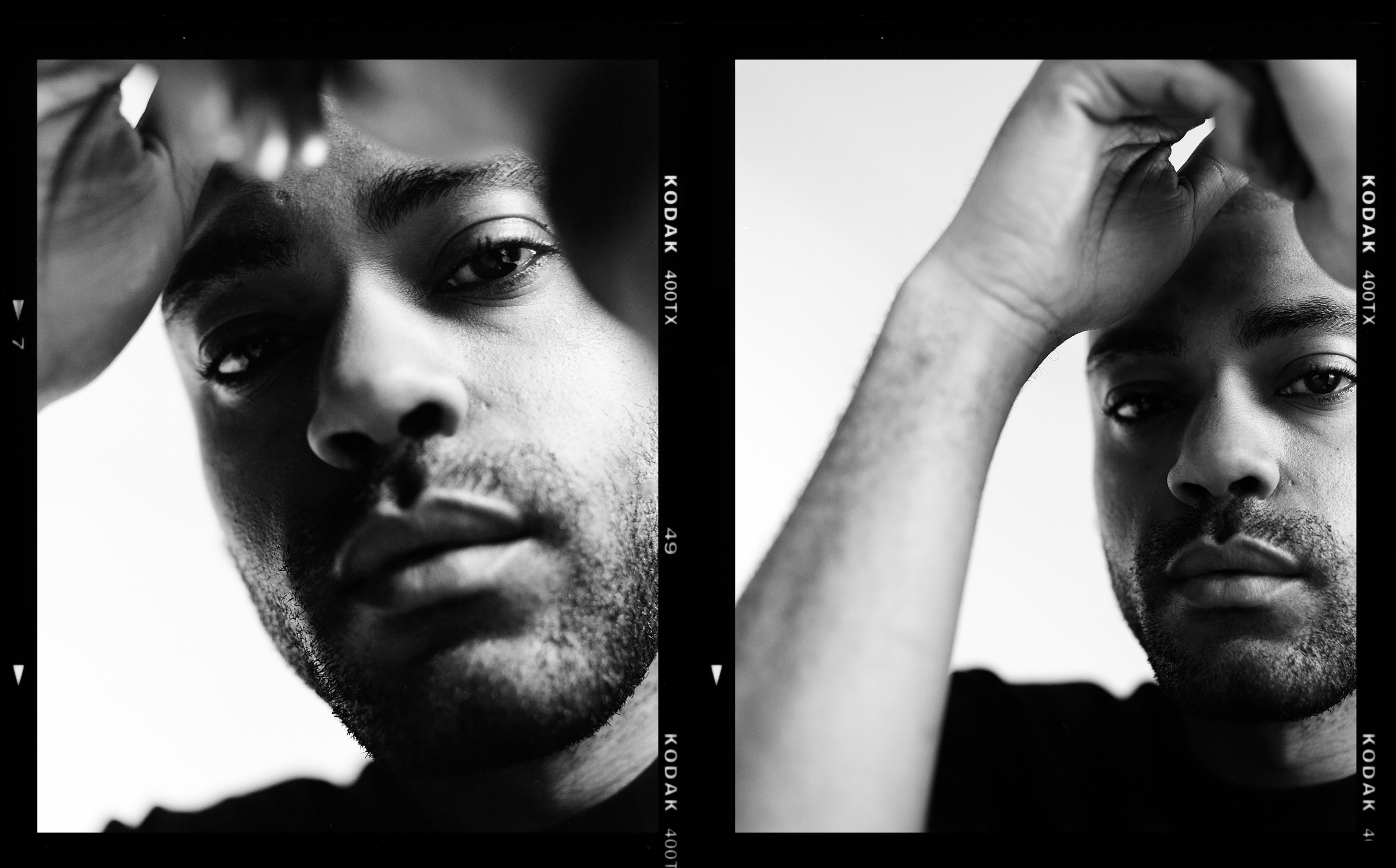
Image by Serge Malange
Death, in the few situations I have known it, always feels like a shock – even when you know it is coming. Hearing of the death of a loved one can make the ground feel uneven, absent even – it changes your perception on everything from taste to colour as reality finds new meaning. Death, when a body is at one moment in full flow, doing what bodies do – chatting, texting, thinking, smiling, laughing – and then next, at the scene of an accident pronounced dead, is a shock that takes the wind from you. Or that takes the words from you.
I didn’t know Cadet personally, but the news of his death sucked the wind from me. Perhaps because his music was so raw, so honest and so personal that at times it felt like I did know him. He seemed like such a real, clean-hearted character and, even though we’re not kids any more, the idea of bad things and good people still seem difficult to merge. Perhaps it’s because Cadet (real name Blaine Cameron Johnson) was just as young as me, humbly making his way up in his field, with the glory of his tomorrow set to be even greater than his today. Maybe it was just because I’m the kind of south Londoner that treats everyone my side of the river like a distant cousin – and there was that one time I got a selfie with him at Glastonbury when I went fangirl after his set. All I know is that is that I didn’t truly understand what tragedy meant until the morning I felt the loss of a man I never knew, like a lead weight pressed onto my chest.
Cadet’s music was a true gift. His ability to look in the mirror and paint perfectly with words exactly what he saw was unparalleled. Stripped back, worlds away from the fantasies of ourselves we’re so accustomed to posting on the internet, the image Cadet created of himself from ‘Slut’ to ‘Stereotype’ through to ‘Closure’ was of an imperfect man, a whole human. Not a man who had always made the right choices, treated friends, family or women the way he should have or even wanted to, but a man who was willing to face up to his shortcomings and grow into being the best version of himself. It was both admirable and inspiring to see someone so boldly confront their demons head on: it gave me goosebumps to hear in his work. Bar after bar he documented a journey of self-doubt, insecurity, heartbreak, pain and yet the underlying message that flowed through was always one of love. A deep and earnest self-love, love for his friends, love for his family. The demonstration of how hard, messy and yet how fruitful such a journey might be, led the way for fans and listeners who needed that push to face up to their own skeletons and work through their own latent pain.
A few months after Cadet’s ‘Letter to Krept’ came out, I hosted a Black History Month event at Goldsmiths University, not far from where two young rappers, Mdot and Showkey, had recently been killed. A group of young people came and performed tributes they’d written for their late friends. One, a talented lyricist who searched for a way to articulate his grief and the love he’d felt for his friend, borrowed the beat and form of the Cadet track as a way to get his words out. They joked in the youth club where we first met that everyone’s writing letters now, since Cadet’s landed. Damn, I thought, what a trend to set. That day the conversation was not about the impact that Cadet’s uninhibited emotional expression had had on young men grieving the daily tragedies that occur in the local area. Still, I sat quietly grateful, as I was under no illusion of just how needed a person like Cadet was in our culture, representing our community.
It was fitting then, that at the Hyde Park Tribute to Cadet, his mother – the woman who raised him and will have instilled in him so many of the values he lived by – spoke with such astounding strength and resilience about the life of her son, which was not in vain. He had touched so many people, in ways that truly mattered, that stayed with them and that won’t be forgotten. In her speech, she implored; “I need you men to express yourselves, express your feelings.” Because that is what Cadet did so eloquently for so long, and in doing so encouraged other men to do the same.
Blaine Abdul Johnson’s (Cadet) Mother letting us all know that at the end of the day the most important thing for us to do is to express ourselves. Thank you. #UnderratedLegend ?? pic.twitter.com/JU5Wk0HI5J
— Mim Shaikh ✨ (@MimShaikh_) February 10, 2019
I remember being moved simultaneously by Cadet’s letter and a piece by Jesse Bernard entitled ‘Untaming My Masculinity – Embracing Male Intimacy.’ The letter felt like the embodiment of a male intimacy that was beautiful to me, a celebratory affirmation of the love between two men, and I had wanted to write something about the gift I felt Cadet had given: the gift of music to people like me, to young men looking for ways to express pain, to Krept and everyone else in his life who knew how much love he had for them. I remember wanting to give thanks, making some notes and then life happened and I got distracted – I didn’t open that document again until I sat down to write this.
The lessons of Cadet’s tragic death – but, more importantly, of his life well lived and well loved – are abundant. As articulated by his mother and cousin – express your feelings, don’t hold them in, squash the beefs in your life, and, just as he would, tell everyone you love that you love them as often as you can. And give thanks for the music, because like life itself – it’s a gift.









